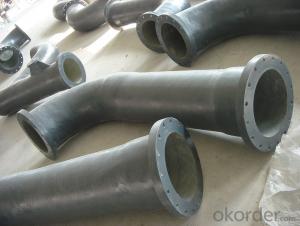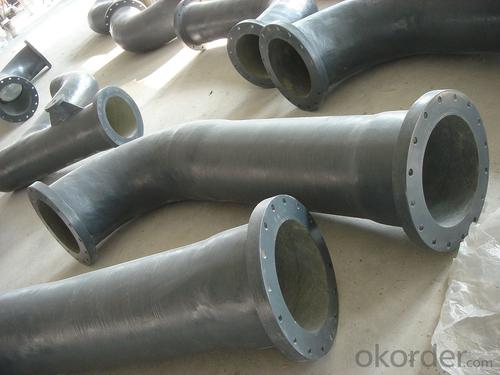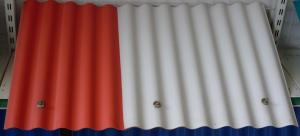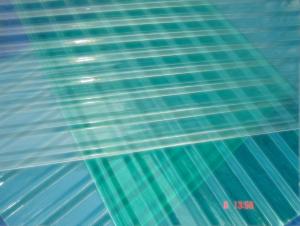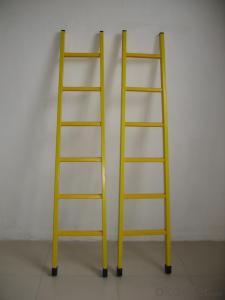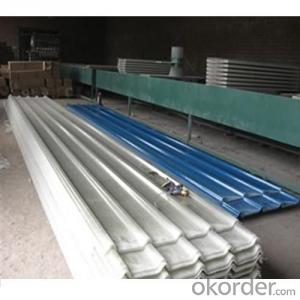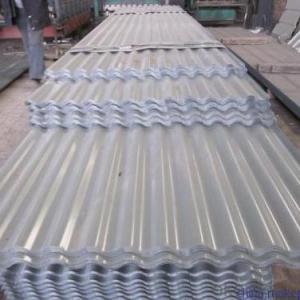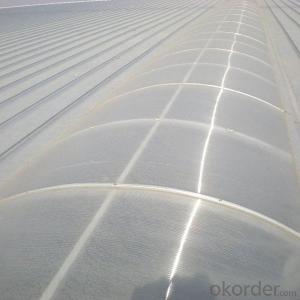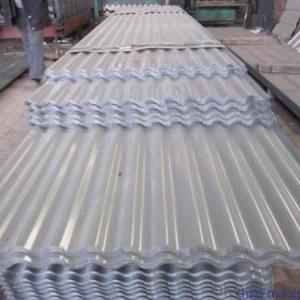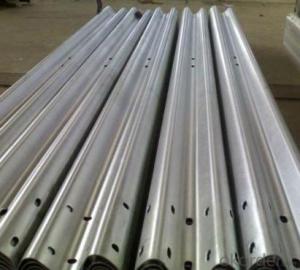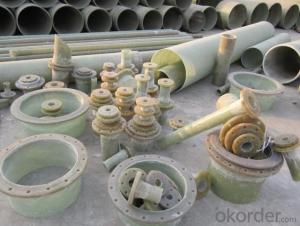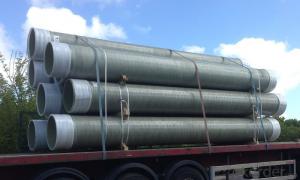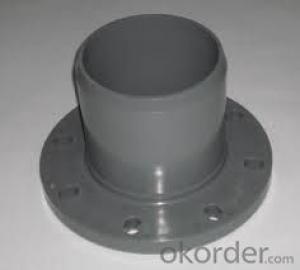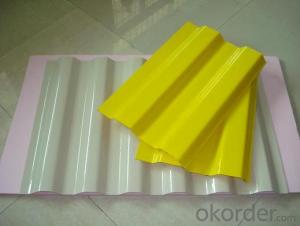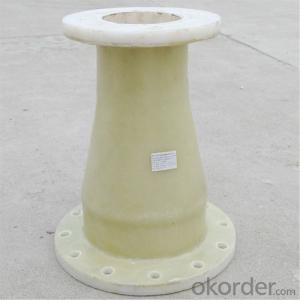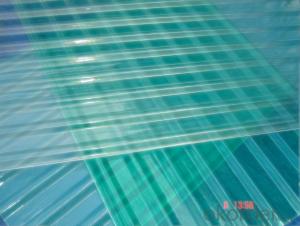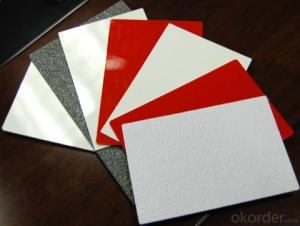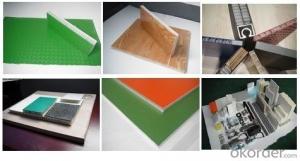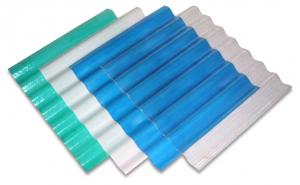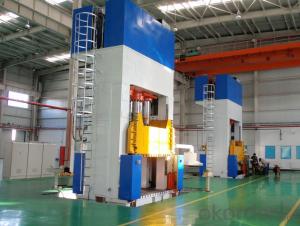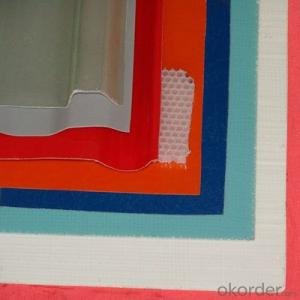Resolite FRP Roof Panels - Fiberglass Reinforced Water Pipe Fittings
- Loading Port:
- China main port
- Payment Terms:
- TT OR LC
- Min Order Qty:
- 100 kg
- Supply Capability:
- 100000 kg/month
OKorder Service Pledge
OKorder Financial Service
You Might Also Like
Specifications
FRP water pipe fittings
1.Safety
2.Applicability
3.Durability
4.Economy
FRP Pipe Fitting
1.Safety
2.Applicability
3.Durability
4.Economy
FRP Pipe Fitting
1. Good physical mechanics performance
2. Being resistant to chemical erosion and longer service life
3. Excellent hydraulic characteristics
4. Lower installation and keeping cost
5. Flexible design and shorter reform term
6. No medium pollution
1.Chemical medium transportation pipe
2.Various producing process pipe (chemical process, paper making process, polluted water treatment
process, sea water purifying process, food and drink producing process, and medicine producing process)
3.Pressure pipe for small hydroelectric power station on the ground and cycling pipe for power plant
4.Polluted water collecting and transporting pipe
5.Drink water transporting main line and tubing pipe
6.Oil field water injecting pipe and oil transporting pipe
7.Heat transporting pipe and sea water transporting pipe
8.Agricultural irrigation pipe
9.FRP set (ventilation, air-conditioner, chimney, cleaner) and piping
10.Gas drainage pipe for mine
Features
1.Medium and low pressure pipe 0.6MPa2.5 MPa
2.High pressure pipe5.5MPa24 MPa
3.Mobile gravity pipe (which can be used when the pressure is under 0.6MPa)
4.Vacuum tube, external pressure pipe or siphon
If you have interest in the FRP pipe, please provide the following parameters: media, pressure and the use of the environment (overhead or buried), temperature, stiffness requirements, connections.
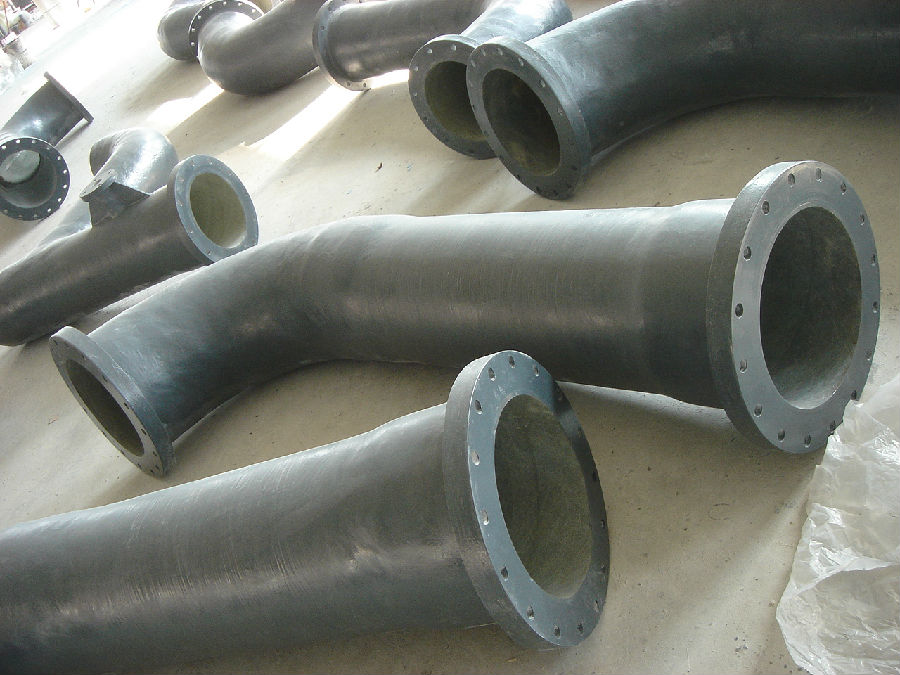
- Q: Can FRP roofing panels be used for commercial signage or advertising displays?
- Yes, FRP (Fiberglass Reinforced Plastic) roofing panels can be used for commercial signage or advertising displays. FRP panels are lightweight, durable, and weather-resistant, making them an excellent choice for outdoor signage. Their smooth surface allows for high-quality printing or vinyl graphics to be applied, creating eye-catching displays. Additionally, FRP panels can be easily cut and shaped to meet specific design requirements, making them versatile for various signage applications. Their long lifespan and low maintenance needs also make them a cost-effective option for commercial signage or advertising displays.
- Q: Are FRP roofing panels suitable for university campuses or educational buildings?
- Yes, FRP (Fiberglass Reinforced Plastic) roofing panels are suitable for university campuses or educational buildings. FRP panels offer several advantages that make them a viable option for such structures. Firstly, FRP roofing panels are highly durable and long-lasting. They are resistant to extreme weather conditions, such as hail, snow, and UV radiation, ensuring that the roof remains intact and functional for an extended period. This durability reduces the need for frequent repairs or replacements, making them a cost-effective choice for educational institutions with limited budgets. Additionally, FRP panels are lightweight, making them easier to install and transport. This property is particularly beneficial for large educational buildings, where the installation process can be time-consuming and complex. The lightweight nature of FRP panels also puts less stress on the building's structure, reducing the risk of damage. Furthermore, FRP roofing panels offer excellent thermal insulation properties. They can effectively regulate the temperature inside the building, reducing the reliance on heating or cooling systems. This energy efficiency not only reduces utility costs but also contributes to a more sustainable and eco-friendly campus or educational facility. Another advantage of FRP panels is their versatility in design. They are available in a wide range of colors, shapes, and finishes, allowing architects and designers to create aesthetically pleasing roofs that complement the overall appearance of the campus or educational building. This can enhance the visual appeal of the institution and create a conducive environment for learning. Lastly, FRP panels are low-maintenance. They require minimal upkeep, such as periodic cleaning, to maintain their appearance and functionality. This low-maintenance feature is particularly advantageous for busy university campuses or educational buildings, where staff may not have the time or resources to devote to regular roof maintenance. In conclusion, FRP roofing panels are indeed suitable for university campuses or educational buildings due to their durability, lightweight nature, thermal insulation properties, design versatility, and low-maintenance requirements. These panels can provide long-lasting protection, energy efficiency, and aesthetic appeal, making them a practical and efficient choice for educational institutions.
- Q: Are FRP roofing panels resistant to vandalism?
- FRP roofing panels are generally resistant to vandalism due to their strong and durable fiberglass material. Intentional damage to FRP panels is difficult because they are designed to withstand impacts and harsh weather conditions. The smooth and seamless surface of FRP panels also makes it challenging for vandals to leave marks or graffiti. Unlike metal or asphalt roofing materials, FRP panels do not easily dent or scratch, even when someone tries to damage them with sharp objects. Moreover, the installation of FRP panels at heights that are not easily accessible further reduces the likelihood of vandalism. Their lightweight nature allows for easy installation on various architectural structures. However, it's important to note that while FRP panels are highly resistant to vandalism, they are not completely immune. Determined vandals may still find ways to cause damage using heavy tools or chemicals. Therefore, it is advisable to implement additional security measures, such as surveillance cameras or lighting systems, to deter potential vandals and protect the roofing panels.
- Q: Can FRP roofing panels be customized in terms of color and design?
- Yes, FRP roofing panels can be customized in terms of color and design. They can be manufactured in various colors and patterns to suit different aesthetic preferences and architectural requirements.
- Q: Are FRP roofing panels resistant to warping or bowing?
- Yes, FRP (Fiberglass Reinforced Plastic) roofing panels are highly resistant to warping or bowing. The combination of fiberglass and plastic materials used in their construction provides exceptional structural stability and durability, making them less susceptible to deformation due to temperature changes or external forces.
- Q: Can FRP roofing panels be used in curved or domed roofs?
- Yes, FRP roofing panels can be used in curved or domed roofs. The flexibility and versatility of FRP panels make them suitable for various architectural designs, including curved or domed roofs. They can be molded or bent to match the desired curvature of the roof, providing a durable and aesthetically pleasing solution.
- Q: Are FRP roofing panels suitable for ice and snow regions?
- Yes, FRP (Fiberglass Reinforced Plastic) roofing panels are suitable for ice and snow regions. FRP panels are known for their durability, strength, and resistance to extreme weather conditions, including ice and snow. They have excellent thermal insulation properties, preventing heat loss and minimizing the risk of ice dams and snow accumulation. Additionally, FRP panels have a smooth surface that allows for easy snow shedding, reducing the weight and potential damage caused by heavy snow loads. Overall, FRP roofing panels are a reliable choice for ice and snow regions.
- Q: Can FRP roofing panels be used for both residential and commercial bus stops?
- Yes, FRP (Fiberglass Reinforced Plastic) roofing panels can definitely be used for both residential and commercial bus stops. FRP roofing panels are highly versatile and durable, making them suitable for various applications, including bus stops. They are known for their excellent resistance to UV rays, weather elements, and corrosion, which makes them ideal for outdoor structures like bus stops. The use of FRP roofing panels for bus stops offers several advantages. Firstly, they have a long lifespan and require minimal maintenance, making them cost-effective in the long run. Additionally, FRP panels are lightweight, making them easy to install and handle. This is particularly beneficial for bus stops, as it allows for easier and quicker construction or installation. Moreover, FRP roofing panels are available in various sizes, colors, and designs, allowing for customization to fit the specific requirements of residential and commercial bus stops. They can be easily cut and shaped to accommodate different architectural designs and styles. Furthermore, FRP panels provide excellent insulation properties, which can help regulate temperature inside the bus stop. This is particularly beneficial during extreme weather conditions, ensuring the comfort and safety of waiting passengers. In conclusion, FRP roofing panels are a suitable choice for both residential and commercial bus stops due to their durability, low maintenance requirements, ease of installation, customization options, and insulation properties. They offer a reliable and long-lasting roofing solution for bus stops, ensuring the comfort and protection of passengers.
- Q: Are FRP roofing panels suitable for bus shelters or transit stations?
- FRP roofing panels are the perfect fit for bus shelters or transit stations. Their durability, strength, and ability to withstand various weather conditions make them the ideal option for outdoor structures. To begin with, FRP panels possess exceptional resistance to UV radiation. This means they can endure prolonged exposure to sunlight without fading or deteriorating. This is especially vital for bus shelters or transit stations that are typically located outdoors and continuously exposed to sunlight. Furthermore, FRP panels have a high resistance to moisture and water damage. They don't absorb water, which prevents issues like rotting or warping that are common with other roofing materials. This is particularly beneficial for bus shelters or transit stations as they often encounter rain, snow, and other forms of precipitation. Additionally, FRP panels are lightweight yet sturdy, making installation easy while providing ample structural support. This is advantageous for bus shelters or transit stations as it reduces both installation time and costs. Moreover, FRP panels require little maintenance and are resistant to corrosion, making them a cost-effective choice for long-term use. They don't necessitate frequent painting or sealing, and their durability ensures they can withstand the wear and tear associated with high-foot traffic areas. In conclusion, FRP roofing panels are an outstanding choice for bus shelters or transit stations due to their durability, weather resistance, low maintenance demands, and cost-effectiveness.
- Q: Can FRP roofing panels be used in areas with frequent lightning strikes?
- Yes, FRP (Fiberglass Reinforced Plastic) roofing panels can be used in areas with frequent lightning strikes. FRP panels are known for their excellent electrical insulation properties, which make them a suitable choice for such high-risk areas. The fiberglass material used in FRP panels is non-conductive, meaning it does not conduct electricity. This characteristic ensures that the panels do not attract or conduct lightning strikes, reducing the risk of damage or fire hazards. Additionally, FRP panels are also resistant to corrosion, which further enhances their suitability for areas prone to frequent lightning strikes. However, it is important to note that while FRP panels may provide a level of protection against lightning, it is always recommended to consult with a professional or follow local building codes and regulations to ensure proper installation and safety measures are in place.
Send your message to us
Resolite FRP Roof Panels - Fiberglass Reinforced Water Pipe Fittings
- Loading Port:
- China main port
- Payment Terms:
- TT OR LC
- Min Order Qty:
- 100 kg
- Supply Capability:
- 100000 kg/month
OKorder Service Pledge
OKorder Financial Service
Similar products
Hot products
Hot Searches
Related keywords
